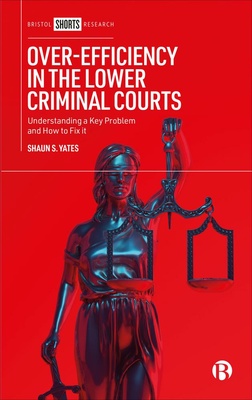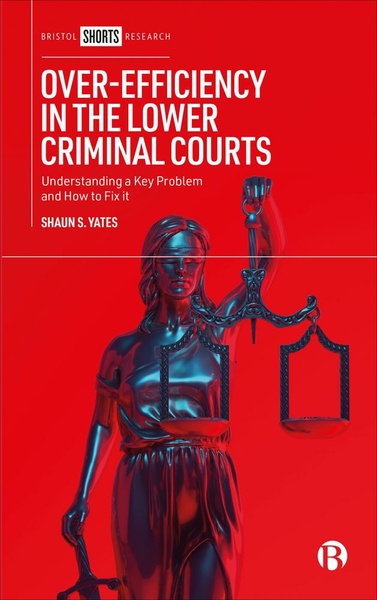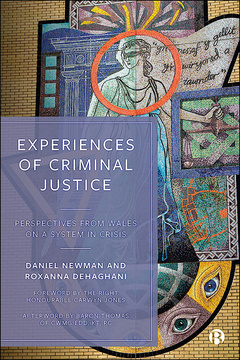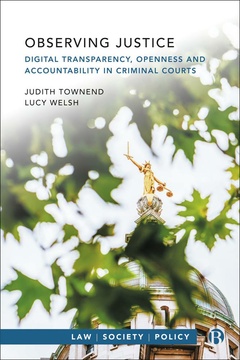Over-Efficiency in the Lower Criminal Courts
Understanding a Key Problem and How to Fix it
By Shaun Yates
Published
Jun 11, 2024Page count
160 pagesISBN
978-1529236392Dimensions
203 x 127 mmImprint
Bristol University PressPublished
Jun 11, 2024Page count
160 pagesISBN
978-1529236408Dimensions
203 x 127 mmImprint
Bristol University PressPublished
Jun 11, 2024Page count
160 pagesISBN
978-1529236408Dimensions
203 x 127 mmImprint
Bristol University PressIn our pursuit of efficiency in the lower criminal courts, have we lost sight of quality justice? Through the critical examination of original stenographic data, this book demonstrates how an English Magistrates' courthouse often pursued managerial efficiency to the detriment of social justice and procedural due process values.
Given that these courts process more than 95% of all criminal cases, this ‘over-efficiency’ problem has the capacity to cause significant social harm. Yates’ work concludes by providing socio-legal and criminological readers with ways to fix this over-efficiency problem. This accessible work is of value to policy makers and post-graduate students alike.
“It’s said that justice delayed is justice denied but can justice be too speedy? This timely book suggests defendants’ rights are being sacrificed on the altar of magistrates’ court efficiency." Penelope Gibbs, Transform Justice
“Yates delivers a timely and informative text surrounding the quality of justice in the magistrates’ court and the constant quest for efficiency through plea bargaining and the rise of managerialism.” Ed Johnston, University of Northampton
Shaun S. Yates is course leader for the Criminology and Law BA at London Metropolitan University and currently serves as the university’s Crime Challenge Champion Lead.
Chapter 1: Introduction
Chapter 2: The Modern History of Summary Justice Efficiency
Chapter 3: Speed-Focused Managerialism
Chapter 4: Standardised Defendant Processes
Chapter 5: Court Users’ Procedural Adversity
Chapter 6: Overcoming Over-Efficiency












